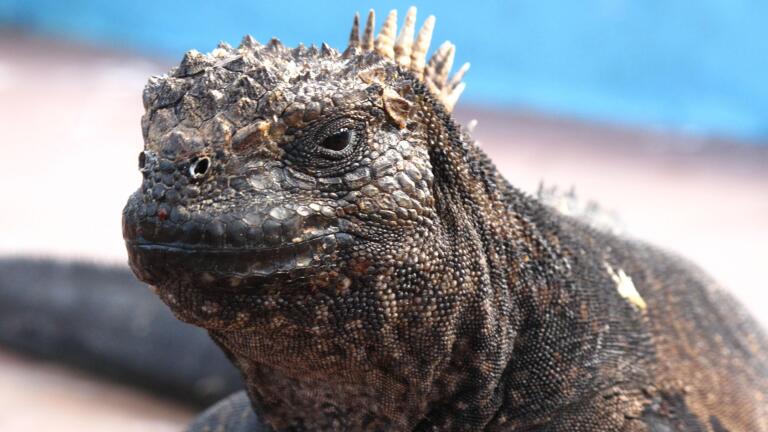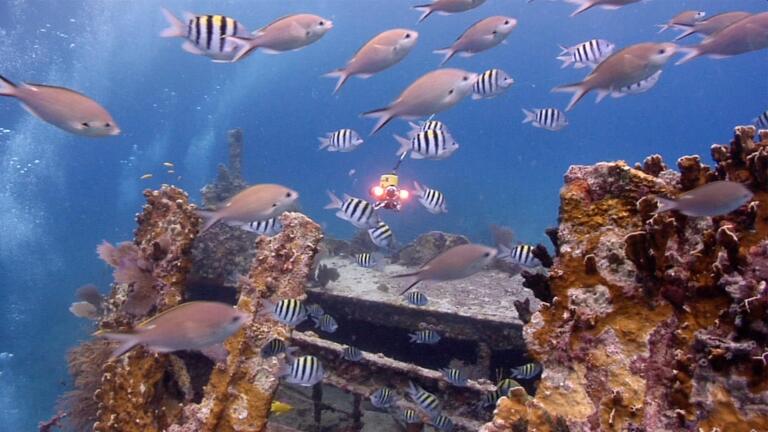
Access to this video is a benefit for members through PBS Passport.
Back to Show
Watch Preview
Changing Seas
Maug’s Caldera: A Natural Laboratory
Season 8
Episode 803
Visit the remote Pacific, the islands of Maug. Formed by an ancient volcano, shallow hydrothermal vents are found close to coral reefs inside the submerged caldera. These vents emit levels of CO2 that can be expected in the world’s oceans by the end of the century, making these waters a natural laboratory for scientists studying the impacts of ocean acidification on coral reefs.
Support Provided By

Unlock with PBS Passport
26:44
Researchers provide data necessary to protect fish populations from further decline.

Unlock with PBS Passport
26:42
Researchers study what impact ecotourism might have on southern stingrays.
Unlock with PBS Passport
26:43
Researchers are beginning to understand where turtles go during their “lost years.”

Unlock with PBS Passport
26:54
Scientists conduct research to save the Smalltooth Sawfish.

Unlock with PBS Passport
27:02
Scientists spend a month in the Galapagos Islands to conduct research.

Unlock with PBS Passport
26:54
The world’s largest known aggregation of whale sharks occurs just off the coast of Cancun.

Unlock with PBS Passport
26:48
Discover Crinoids which have been around since before the age of Dinosaurs.

Unlock with PBS Passport
26:46
The Changing Seas team meets with researchers in French Polynesia.

Unlock with PBS Passport
26:46
New research sheds light on the lives of mysterious creatures of the deep.

Unlock with PBS Passport
26:45
Divers from around the country learn how to map shipwrecks.

Unlock with PBS Passport
26:45
Follow one scientist studying coral in Belize.

Unlock with PBS Passport
27:14
Scientists studying the coastal Everglades make some perplexing discoveries.











